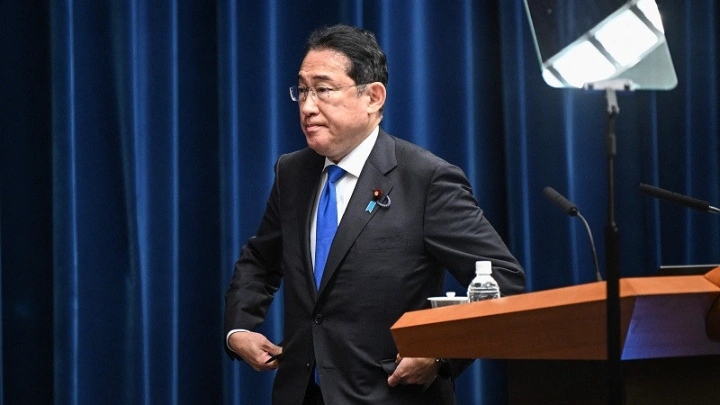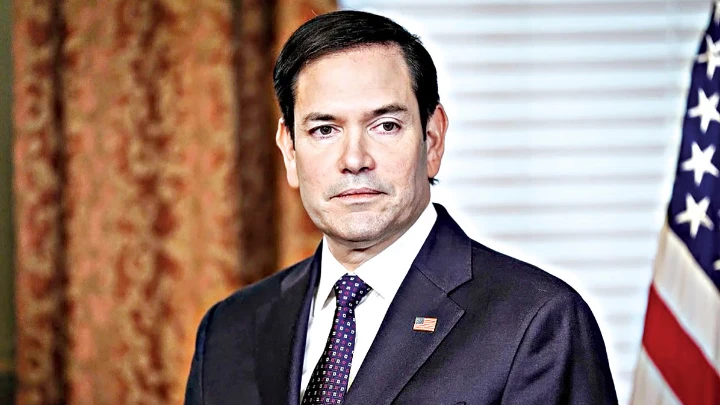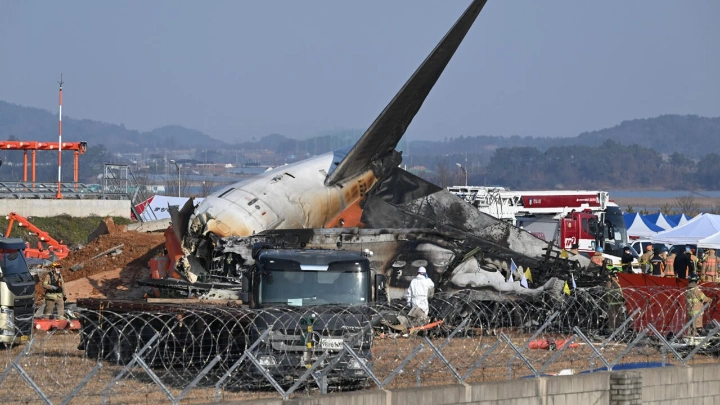Unpopular Japan PM Kishida to step down
AFP || Shining BD
Japanese Prime Minister Fumio Kishida announced Wednesday he will step aside next month, ending a three-year term plagued by low popularity ratings and a spluttering economy.
The ruling Liberal Democratic Party, which has governed almost uninterrupted for decades, is due to hold a leadership contest next month, with the winner to become prime minister.
Kishida said Wednesday he will not seek re-election as party chief.
"In this (party) presidential election, it is necessary to show the people that the LDP is changing and the party is a new LDP," Kishida told reporters in Tokyo.
"For this, transparent and open elections and free and vigorous debate are important. The most obvious first step to show that the LDP will change is for me to step aside," he said.
Kishida, 67, in office since October 2021, has seen his and his party's poll ratings slide sharply in response to rising prices hitting Japanese incomes and several scandals.
In November, Kishida announced a stimulus package worth 17 trillion yen (more than $100 billion at the time) as he tried to ease the pressure from inflation and rescue his premiership.
But this failed to make him any less unpopular, both among voters and within his own party in the world's fourth-largest economy.
Along with inflation -- for many Japanese voters an unfamiliar and unwelcome phenomenon -- growth spluttered and the yen plummeted.
Early exit
Kishida won plaudits abroad, siding decisively with Ukraine since Russia's invasion, and with US encouragement moved to make Japanese defence policy more muscular to counter China.
Under his "steadfast leadership", Kishida "helped build a latticework of security alliances and partnerships across the Indo-Pacific region that will stand the test of time," US ambassador Rahm Emanuel said on X.
Kishida could in theory have governed until 2025, and there had been speculation he might call a snap election to shore up his position.
But NHK reported that growing voices inside the LDP believed it would fare badly in elections under Kishida. In April, the party lost three by-elections.
Kishida, who last year escaped a pipe-bomb attack unscathed, has also faced severe criticism over a major kickbacks scandal linked to fundraising parties.
He quit because he feared he could lose the leadership battle and might have been advised to do so by party elders, said Koichi Nakano, a political science professor at Sophia University.
"He has failed to close ranks within the LDP," Nakano told AFP.
But he added: "For an LDP leader, staying in power for three years is longer than the average."
First woman PM?
Several figures have been mooted as possible successors including digital minister Taro Kono and economic security minister Sanae Takaichi, who would be Japan's first female premier.
Others include Shigeru Ishiba, former party number two, and Shinjiro Koizumi, former environment minister and son of ex-premier Junichiro Koizumi.
Because of the funding scandal, Kishida pushed powerful factions within the LDP to disband, which will change the nature of the coming leadership battle, analysts said.
"As the general election is close, LDP lawmakers and party members are more likely to choose the (party) president who is popular with the people," said Naofumi Fujimura, professor of political science at Kobe University.
But voter Kentaro Oba, 40, said that none of the likely candidates struck a chord with him.
"I personally think the negative sides of the LDP have been surfacing lately, so a change in power might be a good idea," the company worker told AFP.
"I personally would like to see someone younger take charge," said Akito Kashino, 26.
"We have only seen very old politicians lead our country so far, so someone more youthful and efficient would be good."
Shining BD






















